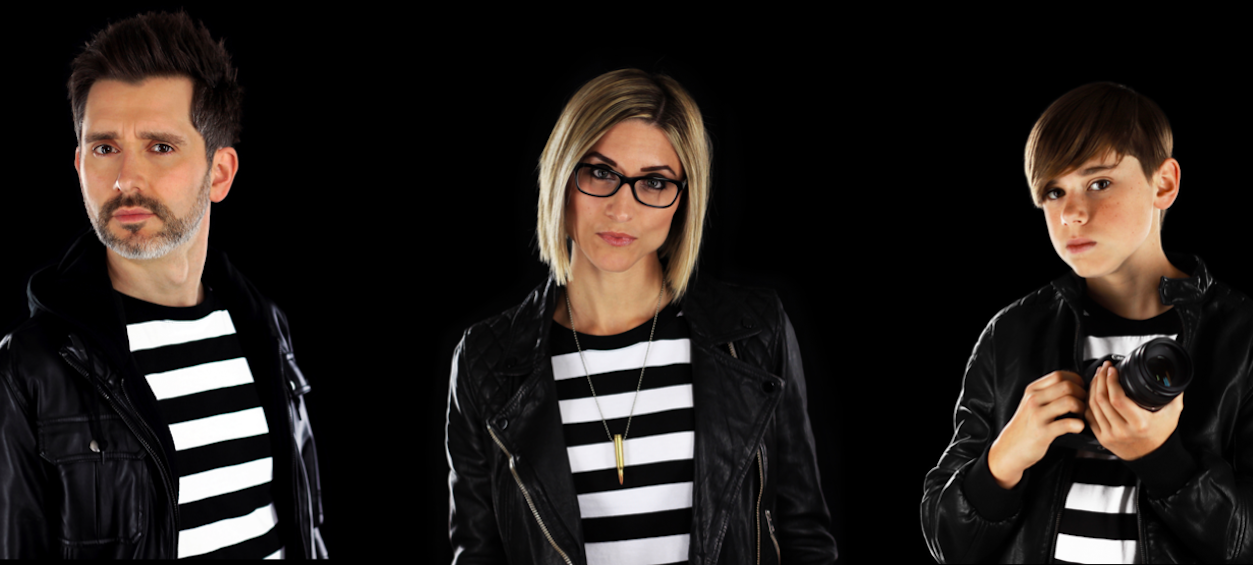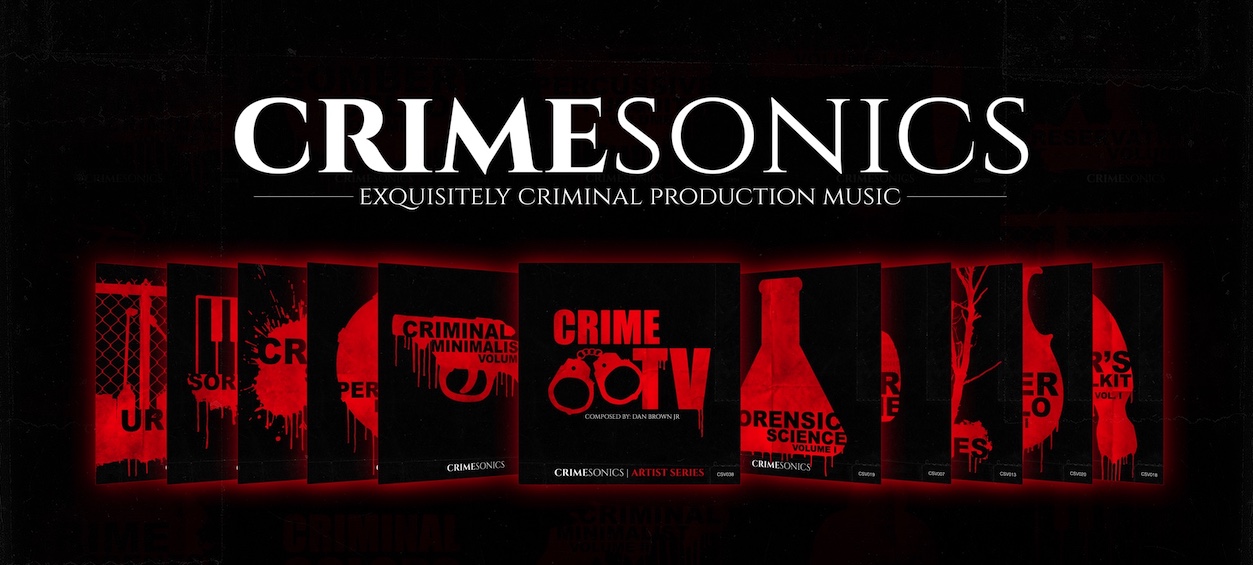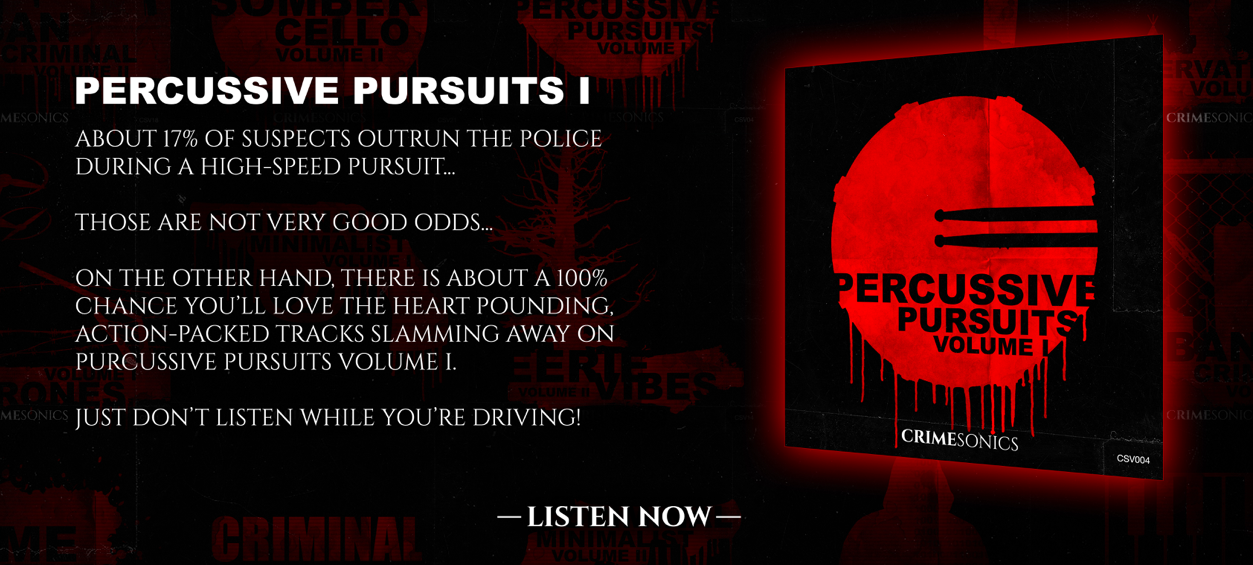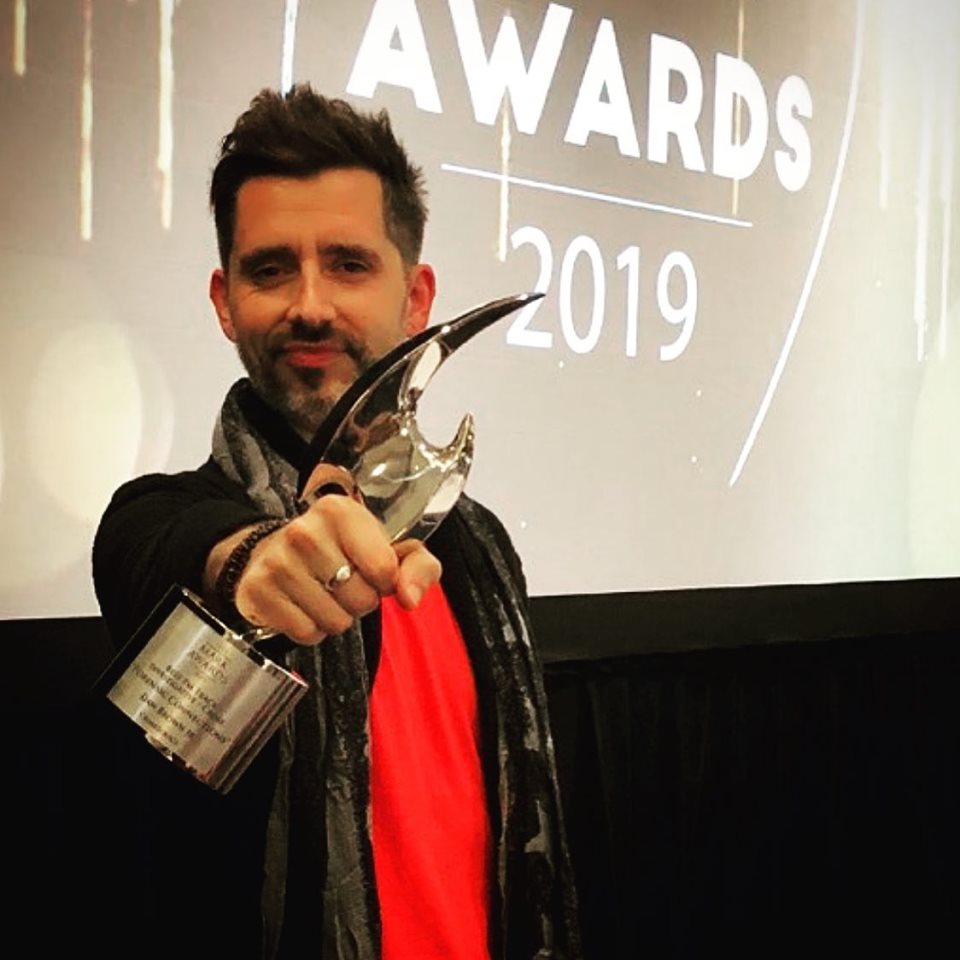In early 2018 composer Dan Brown Jr set out with one mission: to take over the sound of crime. Enter CrimeSonics, the production music library redefining what crime TV can sound like. Want to know more? Check out our Q&A with the founder and creative director himself…
How did you get into music and more specifically writing music for crime shows?
I come from a musical family. My grandfather was an award-winning bluegrass musician and my dad was in the family band. I started playing guitar around nine or ten as well as piano and drums. I started falling in love with crime TV in my early twenties and the music made an impression on me because I heard a lot of interesting dark guitar and sound effects. I had just started writing music for budget indie films and I remember telling my wife, “I think we need to move to LA so I can write music for crime shows”, and so we did. We just moved here and we didn’t know anyone. I got in touch with composer Jeffa Rona (Sharkwater, Traffic, God of War III, Phantom) and I played him and his team one of my tracks and they were like, “Dude you have chops, you should write for our library.” I wrote a bunch of tracks and sure enough, nine months down the line I started getting royalty statements and I saw Dateline NBC on there. That was a cool moment.
What made you start CrimeSonics?
I kept writing for Jeff’s library and I was also writing for other genres – I worked at Disney for a year doing the big orchestra thing. But I really just wanted to write the crime stuff and I got to the point where I couldn’t find enough libraries that needed that type of music. So, I decided to risk it and start my own crime library. I reached out to composer friends of mine and over a year around 35 of us built a library that really focuses on the sub-genres of crime, not just the generic tension underscore stuff. We launched in January 2019 with 26 volumes ranging from ‘cybercrime’ to ‘Southern justice’ and ‘urban criminal’, and we’re now at 62 volumes. We connected with the guys at BMG Production Music at the Production Music Conference last year and they liked what we were doing so we signed a global distribution deal with them.
With such a specialised library your metadata must be insane
We take metadata incredibly seriously. You have to really; it doesn’t matter how great your music is if it can’t be found. My wife and I write detailed descriptions for each individual track as well as the volumes and we put together really robust keywords. So, for example, if we’re talking about a forensic science track, you’re going to see words like ‘criminal’ and ‘law’ and ‘justice, but also words like ‘luminol’ and ‘DNA’ and ‘forensic science’. I love it. I find writing the descriptions and coming up with the keywords almost as fun as writing the music.
For our volume descriptions I actually spend a considerable amount of time doing research on crime and stats so that music supervisors and editors searching our library get interesting facts. It adds value – if you’re listening to our ‘percussive pursuits’ volume, for example, we can tell you the stats of how many criminals actually get away from the cops, or how many innocent bystanders are killed in high speed pursuits. I’m very interested in crime all round so I inject that into our descriptions and metadata.
You’re at the Production Music Conference this week. What are some interesting talking points in the sector at the moment?
The PMC is getting bigger and bigger each year and there’s a great community of library owners, publishers and composers. There is a lot of buzz at the moment about composing with AI assistance which is interesting. It’s not something I shy away from – I really welcome technology and I’m currently playing around with some AI. I can tell you straight up it’s not there yet, but it’s getting interesting.
So you don’t see AI as a threat to production music?
I don’t think it’s going to be a threat in the foreseeable future. I play 30 instruments well and while a computer’s going to have some amazing banjo samples, it’s not going to be able to throw it down. In the same way, it’s not going to have that human emotive quality for a while. I think it’ll be close and it’ll be a threat to up and coming composers who just stay in the box, but is a computer going to be able to replace an opera singer or a violinist? It’s close, but not yet. I also think people still prefer to deal with people.
It seems to be a great time for niche offerings in production music
Yeah, I’m 36 and I’m very much in this entrepreneurial culture of people from my generation doing the niche thing like running mom and pop shops and gourmet coffee places. I think the niche library is going to become the norm because there are a ton of production music libraries with hundreds of thousands of tracks so it’s great to create something unique. Just like the gourmet coffee guy who supplies his community with something different, I would love production music to be this space where we work closely with music supervisors and there’s a real community. It’s coming soon, I think.
Crime programming has really exploded in recent years which must present a load of opportunities
My wife and I have a saying whenever someone asks us why we started a crime production music library: “People keep killing each other and other people keep making shows about it.” Crime is never going to stop. People will continue to make these terrible choices and the rest of us will continue to watch it happen. Between streaming services and YouTube and podcasts we have access to more crime content than ever and it’s almost becoming cool to be into crime shows. I’m really happy about it because I’ve been digging this stuff since I was 12!

L-R: Dan Brown Jr, Beth Brown, Daniel Brown III
Can you talk about any recent placements?
We just scored a placement in this ‘Cold Case’ spot from Twizzlers! It features a track I wrote called “Big Sky Killer” from our Eerie Vibes Vol. IV.
https://www.youtube.com/watch?v=o1QudUV2yZY&fbclid=IwAR0FcP0hZl1NQtA0BiYkUAUkC4ym1y-oanFRq1_1tJXVAks7oIG-dCLFIz0
What would be your dream project?
The easy answer is any crime show period. But typically, what I enjoy writing the most is music for crime that takes place in the South or the Midwest or even the West. I play the dobro, the slide guitar, banjo, mandolin, native American flutes and all kind of world instruments on top of this high-tech stuff we have to do in this industry. So, if there was a show about crime in Texas or Oklahoma or even New Mexico or Arizona, that would be the perfect gig. A close second would be anything to do with forensics or cybercrime. I could wake up and write that kind of music every day and be happy for the rest of my life.
crimesonics.com
Huge congratulations to Dan and his CrimeSonics team who won the Mark Award for Best Production Music Track in the Crime and Investigation category at this year’s PMC!
Enjoyed this post? Why not check out:
- Production Music Association’s Morgan McKnight on This Year’s Conference and Trends in This Billion Dollar Sector
- Rostrum’s Sync Manager Emoni Matthews Talks Launching the Drip Library, the Go-To Source For Hip Hop Production Music
- Taking Your Production Music Business to the Next Level – Practical Advice from Randy Wachtler
- Soundtrack Dissonance: Horror’s Secret Sync Weapon


